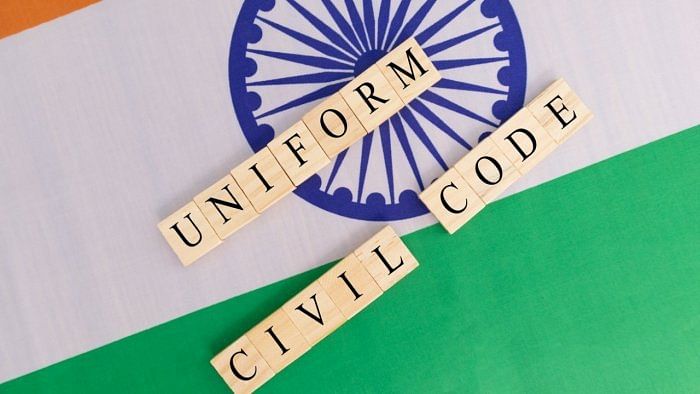
The Uniform Civil Code (UCC)—one personal law for all communities in matters of marriage, divorce, adoption, and inheritance etc—being pushed by the ruling BJP govt will have to wait for a while to get passed. The Bill, in all likelihood, may not get passed during PM Modi's current tenure, reported The Indian Express. UCC happens to be the last piece in the BJP's ideological schema that has yet to be fulfilled, after the contruction of Ram Temple in Ayodhya and the abrogation of Article 370.
The saffron party, however, is likely to keep the UCC issue brewing in its political discourse, as per sources.
Also Read | BJP’s indecisiveness a handicap for NDA
PM Modi publicly pitched for the UCC at a rally in Bhopal on June 28. This was the first public push by him on the controversial legislation, and the announcement had built expectations among masses that the law may soon be enacted. However, prominent functionaries in the government and BJP are of the view that this particular law would require wider consultation and deeper research. Hence, it is highly unlikely that UCC will come into effect before the 2024 Lok Sabha elections.
“The party is keen to see that a bill on UCC is introduced in Uttarakhand as the state government-appointed expert committee is at the final stages of its report and is expected to submit it any time soon. We will see how it is rolled out and its impact,” IE quoted a source as saying. "Once Uttarakhand starts implementing it, other BJP ruled states could follow," the source said.
Multiple issues like laws of inheritance in different communities, tribal customs, and diverse marital practices etc. have to be considered before bringing the law into effect.
“This is not Article 370 or triple talaq, where bills could be hurried… UCC is a complex issue concerning various sections of the society across castes and communities. It will require far wider consultation and much deeper research. Given the size of the country and its diversity, it will not be easy to complete that process so soon,” a government source said.
"UCC does not mean that the existing practices or customs of communities or tribal groups will get affected. All communities will be able to continue with their traditions. The focus will be on gender equality and on the registration process," the source added.
Also Read | Fresh consultation needed over Uniform Civil Code, says Law Minister
A BJP functionary, however, said that unlike the Indian Penal Code, the UCC can’t be codified. “Also, among tribes, cultural practices vary from region to region. An Uttarakhand or Himachal tribal has a very different set of practices compared to a Chhattisgarh tribal. Then in the North East it is totally different. It is good that a debate has begun in the country. It will throw up new ideas to have a common civil law. There can be general agreement on women’s rights though,” the functionary said.
Even the Sangh Parivar is wary of current developments. RSS-affiliate Vanvasi Kalyan Ashram, an organisation which works among tribals, suggested that tribals should be kept out of the UCC law. It also urged adivasi communities to express their apprehensions and reservations pertaining to the proposed law.
"Kalyan Ashram also requests the Law Commission to visit various tribal areas of the country and try to deeply understand their traditional system and their views on the subjects like marriage, divorce, adoption, and succession after holding discussions with prominent people and organisations of the tribal society," Vanvasi Kalyan Ashram’s Vice President Satyendra Singh said.